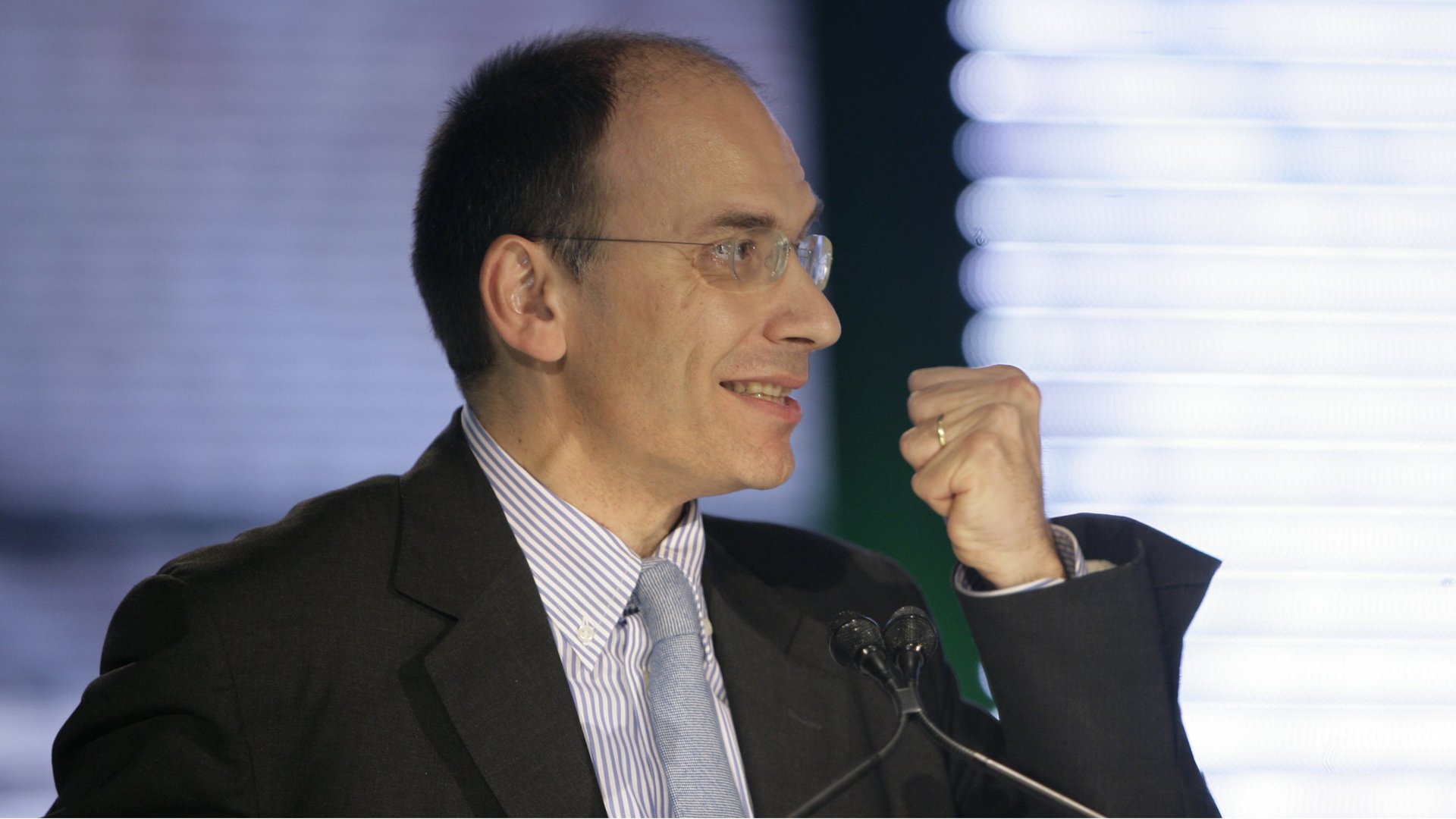What we know about Enrico Letta, Italy’s youngest prime minister in 25 years
Today, Italian president Giorgio Napolitano named Enrico Letta as the country’s newest prime minister, tasking him with uniting a divided parliament. After elections in late February left the country without a stable government, Napolitano decided earlier this week to stay on as Italy’s president rather than to further fan the flames of political uncertainty by retiring, as he had previously planned to do. In return, Italy’s political leaders apparently promised to work with Napolitano’s choice of premier to form a coalition government.


Today, Italian president Giorgio Napolitano named Enrico Letta as the country’s newest prime minister, tasking him with uniting a divided parliament. After elections in late February left the country without a stable government, Napolitano decided earlier this week to stay on as Italy’s president rather than to further fan the flames of political uncertainty by retiring, as he had previously planned to do. In return, Italy’s political leaders apparently promised to work with Napolitano’s choice of premier to form a coalition government.
Letta’s first move as prime minister will be to form a cabinet and hold a confidence vote, which could take place in a matter of days or weeks. Analysts are cautiously hailing Letta’s appointment as a positive sign both for Italy and markets. Morgan Stanley Italy analyst Daniele Antonucci writes in a note today:
With the nomination of Enrico Letta as Italy’s new prime minister, prospects of overcoming the political stalemate are rising. This is a positive development, in our view, and might perhaps mark the beginning of a less volatile period in Italian politics.
But whether it paves the way toward paying the many ‘policy arrears’ that are long overdue remains to be seen. While certain institutional reforms seem likely to some degree, there’s still considerable uncertainty on whether there’s enough support for broader reforms, given parliamentary fragmentation.
At 47, Letta will be the youngest Italian prime minister in 25 years. Despite his youth, Letta is no newcomer to Italian politics, having started his political career while still in his early 20s. From 1991 to 1994, he served as the President of the Youth of the European People’s Party, the youth organization of the EPP, which is the pan-European party in which nearly every major European head of state is currently a member. Letta was a founding member of Italy’s Democratic Party when it was established in 2007, and had served as the second-in-command to the party’s leader, Pier Luigi Bersani, starting in 2009 (Bersani announced his resignation on April 20, after fellow party members rejected his candidates for the presidential seat). Letta has served in four different governments, including as Minister of European Affairs and Minister of Industry.
Some are already calling him ”the first face from Generation X to govern Italy,” suggesting that he could herald a new wave of Italian politics. But it’s unclear exactly where Letta’s beliefs lie; he describes himself as “post-ideological.” In a 2009 interview with Finanzae Dirito about his book “Building a Cathedral: Why Italy Should Go Back to Thinking Big,” Letta embraced increased social mobility as the answer to many of the country’s economic ills (Italian, via Google Translate):
[Change] has to start from here, opening up to competition and merit. I often refer to the Board of Directors of listed companies, where women, with rare exceptions, are in fact relegated to the margins. Or to the current rules governing the election of the Italian Parliament, for which to count are not the skills or the ability to gain the consent of the voters, but the affiliation to the head and loyalty to his line. That is, if we want to jump-start the social elevator, it is essential that whoever holds the controls to challenge and show that they have the requirements that must be required of all others. As for the priority areas for action, the school and university can be a laboratory for social mobility, the space in which test innovative solutions, really marked the assessment of results and awards of merit.
Optimists hope that Letta can appeal to younger Italians and resist becoming mired in bureaucracy. But from a purely political standpoint, Letta also has an important tool up his sleeve; although the new PM himself is a Democrat, his uncle is Gianni Letta, Silvio Berlusconi’s right-hand man. The family tie to Berlusconi’s People’s Democratic League Party (PdL) could help buy the younger Letta credibility in forming a coalition government, even though he has openly criticized Berlusconi in the past.
That could prove crucial. Signore Bunga-Bunga and his party remain the wild cards in Italy’s political scene. They astonished Italy and the rest of the world as their popularity snowballed in final weeks before February’s election, and by all appearances that popularity has only grown. Although it’s unclear that PdL would be able to win in a new election, their failure to cooperate could collapse the Italian parliament.
Update: Beppe Grillo, head of the anti-establishment Five Star Movement, doesn’t seem too happy about Letta’s appointment, saying “Enrico and Gianni are one family,” and suggesting that the younger Letta isn’t as open to change as one might hope. Letta told reporters last year that he preferred votes against his own party go to Berlusconi’s PdL rather than to Grillo’s M5.